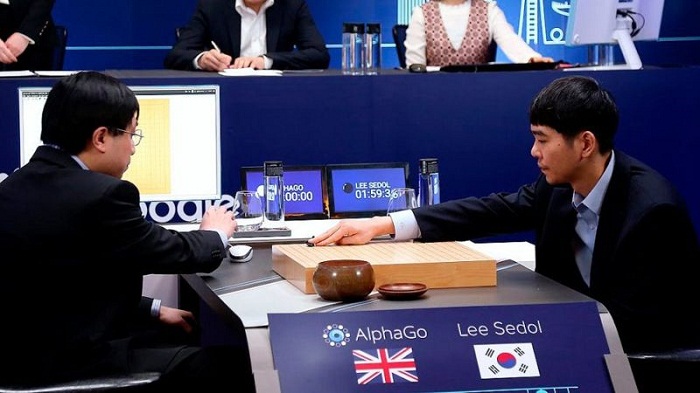Demis Hassabis, founder of DeepMind, said the match had been the "most exciting and stressful" for his team.
Lee Se-dol said he felt "regrettable" that the competition had ended.
At a press conference held after the final match, Mr Lee said he did not necessarily think AlphaGo was superior to humans.
But he said he had more studying to do, and admitted the matches had challenged some of his ideas about the game Go.
In Go, players take turn placing stones on a 19-by-19 grid, competing to take control of the most territory.
The game is considered to be much more challenging for computers than chess.
Ahead of the final, China`s top ranked Go player Ke Jie said he believed he could beat Google`s AI.
He told China Central Television: "In terms of probability, I have a chance to win, but the probability is not as high as I thought before. I think it is 60 per cent in favour of me."
The five match challenge began in Seoul on 9 March, where AlphaGo scored its first victory.
After losing the second match, Lee Se-dol said he was "speechless" adding that the AlphaGo machine played a "nearly perfect game".
In the third game commentators said that Lee Se-dol had brought his "top game" but that AlphaGo had won "in great style".
Google`s winning streak means it will pocket the $1m (£702,000) prize on offer.
But Lee Se-dol did win the fourth game, after which he said: "I`ve never been congratulated so much because I`ve won one game."
The AlphaGo system was developed by British computer company DeepMind which was bought by Google in 2014.
It has built up its expertise by studying older games and teasing out patterns of play.
To beat one of the world`s top players, Deep Mind used a mixture of clever strategies to make the search much smaller.
Does this mean AI is now smarter than us and will kill us mere humans? Certainly not.
AlphaGo doesn`t care if it wins or loses. It doesn`t even care if it plays and it certainly couldn`t make you a cup of tea after the game.
Go is thought to date back to several thousand years ago in China.
Using black-and-white stones on a grid, players gain the upper hand by surrounding their opponents pieces with their own.
The rules are simpler than those of chess, but a player typically has a choice of 200 moves, compared with about 20 in chess - there are more possible positions in Go than atoms in the universe, according to DeepMind`s team.
It can be very difficult to determine who is winning, and many of the top human players rely on instinct.
More about:
















































